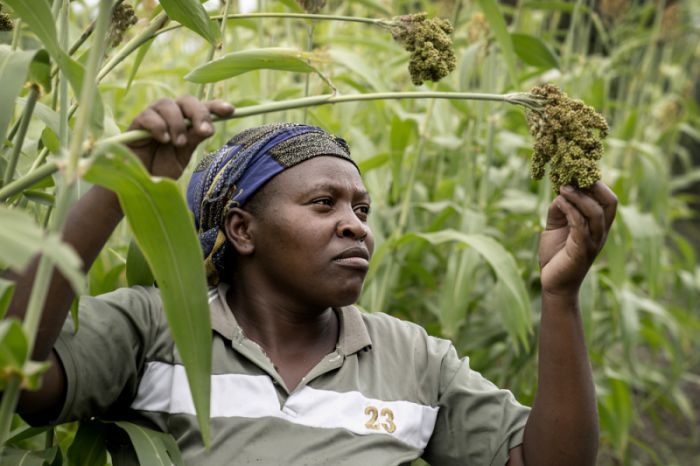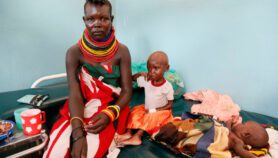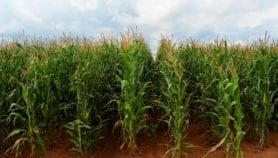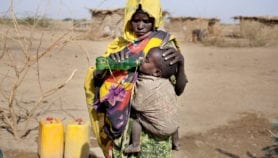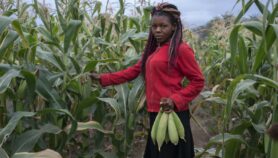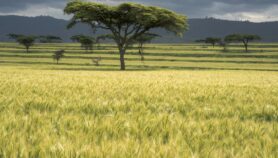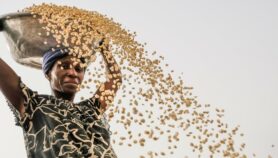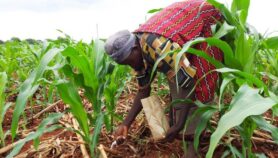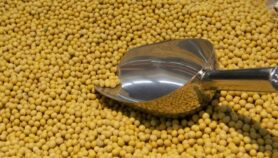Send to a friend
The details you provide on this page will not be used to send unsolicited email, and will not be sold to a 3rd party. See privacy policy.
A report has identified gaps in the capacities and funding for Africa-Europe food security research collaborations, and the need to strengthen such networks and research uptake.
According to the report, the number of hungry people in Africa increased from 175 million to 239 million between 2010 and 2012, a situation that requires effective global cooperation in science, technology and innovation.
In a report published by the CAAST-Net Plus, a EU-funded consortium that advances collaboration between Sub-Saharan Africa and the EU in research and innovation for global challenges, the authors examined 74 Africa-EU food security research projects implemented between 1998 and 2014.
“We, as Africans, need to take the full responsibility of the research agenda and the delivery and implementation of results.”
Johann Jerling, North-West University, South Africa
The report was launched in Accra, Ghana at a meeting of African science policymakers last month (7-8uly).
The report compared the CAAST-Net Plus’ aims and the outcomes of African policies on food security and agriculture such as the Comprehensive Africa Agriculture Development Programme (CAADP) in their linkages with the EU.
The report says there is little involvement in research of large businesses and small-scale farmers, which hinders research adaptation. It adds that capacity developed was not used to inform policy on improving food systems and supporting innovation.
Judith Ann Francis, senior programme coordinator, science and technology policy at the Netherlands-based Technical Centre for Rural and Agricultural Cooperation (CTA) and the report’s lead author, says African and European policymakers are committed to the CAADP goals such as promoting agriculture-led development through increasing food supply, boosting agricultural research and dissemination of agricultural technology.
“The mismatch is in the capacities and financial resources between the two regions and between the priorities and interests of governments and those of the scientific community,” Francis tells SciDev.Net.
The report suggests that a high-level Africa-EU think tank be established to determine research priorities, setting monitoring and evaluation for more research uptake.
Willem de Clercq, a senior researcher at the Soil Science and Water Institute, Stellenbosch University, South Africa, says that without engaging local people, they are unlikely to apply findings resulting Africa-EU research projects.
According to de Clercq, who was not part of the study, but is a researcher on EU and African Union cooperative research to increase food production which started in 2011, gaining the trust of the local people could foster public private partnership (PPP).
“There is a large willingness amongst the locals — especially the small farming communities— to participate in such a programme,” de Clercq notes.
Johann Jerling, director, Centre of Excellence for Nutrition, North-West University, South Africa, says it is easy to talk about PPP, but much more difficult to make it successful.
Jerling says formulating the most pertinent questions and answering those questions around PPPs need to be part of multilateral funding programmes.
This article has been produced by SciDev.Net's Sub-Saharan Africa desk.
References
Judith Ann Francis and Atenchong Talleh Nkobou Africa-EU research collaboration on food security: a critical analysis of the scope, coordination and uptake of findings (CAAST-Net Plus consortium, 2015)


